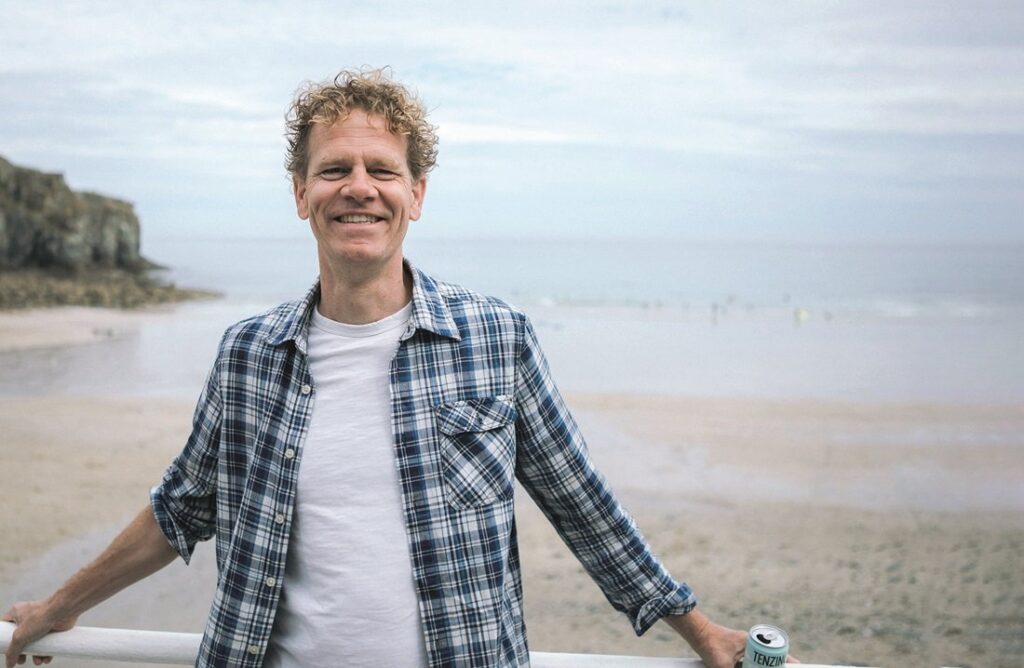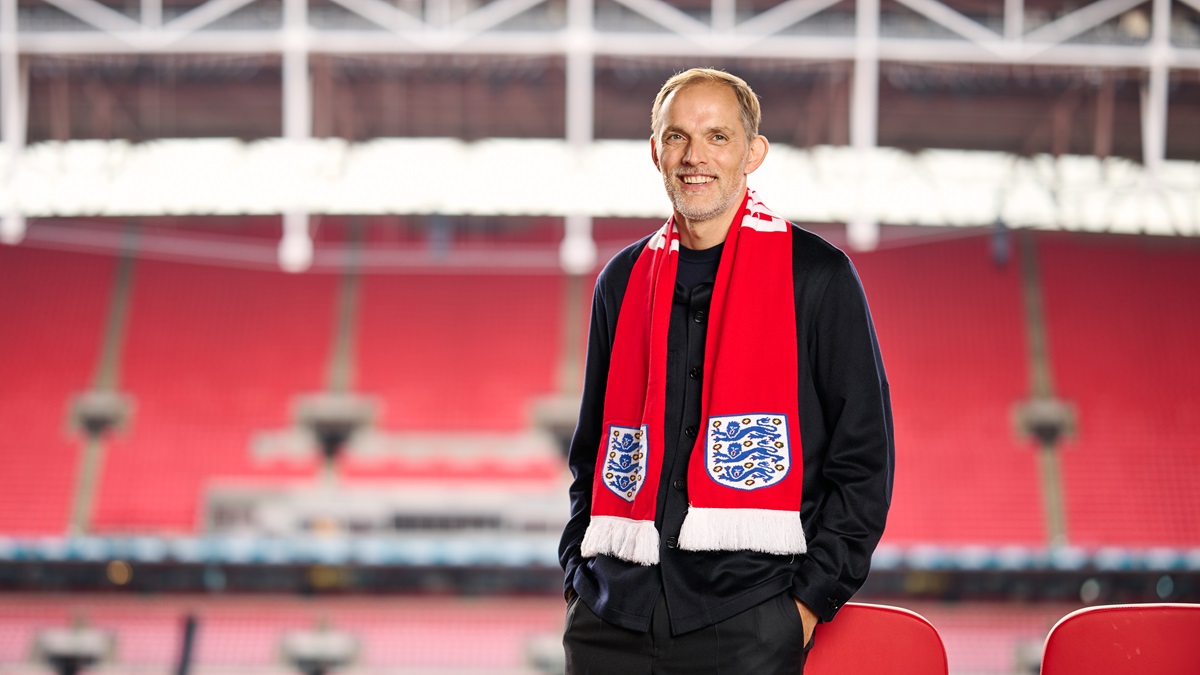Leader in Focus: Huib Van Bockel, Founder of TENZING

Huib Van Bockel is the Founder of TENZING, a 100% natural energy drink. Founded in 2016, TENZING is now the third largest functional energy drink in UK Grocery, according to Nielsen, and is stocked in all major UK supermarkets. In this feature, Van Bockel tells Business Leader why he left his position as Red Bull’s Head of Marketing to start his own energy drinks company, the biggest challenges he’s faced in his career and why he lets employees choose their own managers.
Can you tell us a bit about your background and your experience prior to creating TENZING?
Growing up, we lived abroad a lot because of my Dad’s job. One of those places was South Africa, which is where my love of nature really developed. We’d play in the rivers and run around barefoot – it was such a formative time in my childhood. I also lived in Holland and Mexico and think the fact that I’ve lived in so many places has definitely influenced the international team we’ve hired at TENZING.
I read once that you’re more creative if you’ve lived in different cultures as you find different ways of interpreting and doing things. Living all over the world has been incredibly formative for me and for building TENZING as well.
Why did you decide to start your own energy drinks company?
I’d reached that moment in my life where I wanted to make a positive impact with what I was doing each and every day. I’d previously worked my way up in big companies and I wanted to see what I was made of!
I had this idea of creating a new way of energising people, one that was better for your health and for the planet. I stumbled across a Himalayan tea recipe used by Sherpas to energise themselves whilst on their high-altitude expeditions.
Intrigued to learn more about the history and benefits of this long-standing recipe, I went to meet the Tenzing family – descendants of Tenzing Norgay, one of the first two men to summit Mount Everest. They told me of Sherpa Tenzing’s closeness to nature, drive for adventure and above all, his burning ambition to reach the world’s highest summit.
We continue to work with the Tenzing family and he has become the brand’s guide, inspiration, and the plant-based teas he drank are the foundation of the TENZING recipe.
In 2016, “natural energy” drinks didn’t exist. We created the category which is now thriving. Something I’m very proud of.
What are the main challenges of taking on big names in the energy drinks category?
There have been many challenges along the way – that’s all part of starting your own business! It was quite a shock that I couldn’t simply rely on the network I had built from my previous career. I’ve never been afraid to call on my connections, but a lot of people I’d worked with in the past weren’t interested. I had to persevere and build new connections who were interested in my vision.
In terms of taking on the big dogs, TENZING is trying to change the energy drinks game for good, but that’s not an easy feat when the market is traditionally filled with sugar, artificial ingredients and gas-guzzling marketing activities. Making people aware of a plant-based, low-calorie and sustainable energy drink that energises you just the same has probably been our biggest hurdle, but we know it’s what people want and our growth shows that.
What are the biggest challenges you’ve faced in your career and how have you overcome them?
I’m a big believer in trial and error – just go out and do it, and if it doesn’t work, try something else. With this mentality, comes resilience.
Back in 2016, I emailed Selfridges to see if they would be interested in stocking TENZING. I rocked up at Selfridges (after my email was met with silence) with nothing but a couple of TENZING cans – I didn’t even have a box! The person I had emailed got halfway down the stairs, saw me and said: “I told you I wasn’t interested!” – and walked straight back up. I cried.
It wasn’t just my ego that was hurt, it was a moment of “Why am I doing this, why did I leave the security of my previous job, how is this going to pan out for my family?” I had risked everything for this business, and I had been utterly rejected, in person!
After a few back and forths, and some strong data from Planet Organic and other stores, Selfridges did take us on and we’re still in there, now with 4 SKUs!
What trends are you currently seeing in the energy drinks sector?
The energy drinks market is constantly evolving. Sourcing locally is increasingly important as consumers want to know where their products are coming from. Consumers are also becoming increasingly health-conscious and the impact of what they consume has on both their body and the planet.
Why do you let employees choose their own managers?
We’ve always operated a self-managed structure, which isn’t always easy, but it empowers our team members to stick to their guns and flourish. And that’s what I really look for when hiring my team. Someone who is self-reliant, not afraid to network, who gets on with things and who doesn’t like being told what to do!
I’ve always hated people telling me what to do, so this is where the whole idea came from. I believe that when people have a feeling of freedom, they make better decisions. It’s also a great feeling to know that your ideas and strategy have led to success, identified when they haven’t and ultimately know what does or doesn’t work for you.
If your boss tells you to do something and then it doesn’t work out, you see it as their fault, rather than taking responsibility for the fact that you did it – which means you don’t learn for next time.
You previously allowed employees to set their own salaries – why don’t you do this anymore?
I figured we’re a start-up, employees will take that into consideration and make a decision based on what we can afford and what they think they’re worth.
What I didn’t realise at the time was that the psychological side of this kind of decision-making is incredibly tricky. Someone could think “Oh I’m only going to ask for X, but what if someone else asks for Y?”. Everyone really struggled with it, and it began to affect everyone, including my partner! It became very messy, and I got rid of that initiative pretty quickly – but again, this comes back to the principle of trial and error – and we all learned as a result.
What do you think makes a good leader and how would you describe yourself as one?
I truly believe that a flat hierarchy system works. The ability to bounce ideas off each other within a close-knit team is really important to me. Work/life balance is also very important, so we go on annual team ski trips to bring the team even closer together and to celebrate our successes.
Is there anything that you think can improve on in regard to your leadership style?
Like lots of entrepreneurs, I’m often fizzing with ideas! When I get very excited about something, I can find myself getting distracted.
I’ve always made sure that I hire people who aren’t afraid to tell me to get on with the task at hand or who will disagree with me and offer a solution or alternative idea. The best advice I can give to other leaders or founders is to ensure that you don’t surround yourself with ‘yes’ people!
Are there any people or types of people who inspire you?
My biggest inspiration has to be Sir David Attenborough. Many people might not know this, but he was the Head of Content for the BBC and was approached to be the Head of the BBC, a job he turned down because he wanted to continue to create nature programmes. A lot of people would jump at the chance to have that job – but that wasn’t his goal.
He followed his passion and gave up a potentially huge career path, all because he wanted to focus on what he wanted to do. I think it’s very inspiring to follow your heart and what you really love.
I read somewhere that he was away from his family a lot because of the documentaries he was filming. I don’t want to follow in his footsteps in that way, but his being away from his family and creating the shows he did brought so many other families together, including my own – we’ve always watched his shows and he brought the love of nature to my kids.
How has TENZING managed to achieve such strong growth in the last year and what are your plans for the future?
It’s a really exciting time for TENZING! We’re now stocked in all major supermarkets in the UK, and we’ve doubled our sales last year – despite the aftereffects of lockdowns.
This year, TENZING is now the third largest functional energy drink in UK Grocery according to Nielsen, and by the end of 2022, we’re set to double our growth again with global expansion on the horizon.
What would you like your legacy to be?
TENZING exists to inspire people to drink, experience and protect the power of nature. It’s why we create plant-based energy drinks that are big on energy and low on impact.
From being carbon-negative to cleaning up Everest, I’m so proud of the work that we do to protect our planet. Nothing beats the thrill of climbing clean mountains, surfing pristine oceans and running through fresh air.
At the end of the day, making an impact in this world is a little bit like climbing a mountain – hard but worth it. The only difference is when you’re climbing a metaphorical mountain instead of a real one is that you’ll never reach the summit because there will always be more to do.
If by the end of all this, TENZING has made a noticeable impact on our industry and the world around us, then I’d say that’s something to be pretty proud of!



